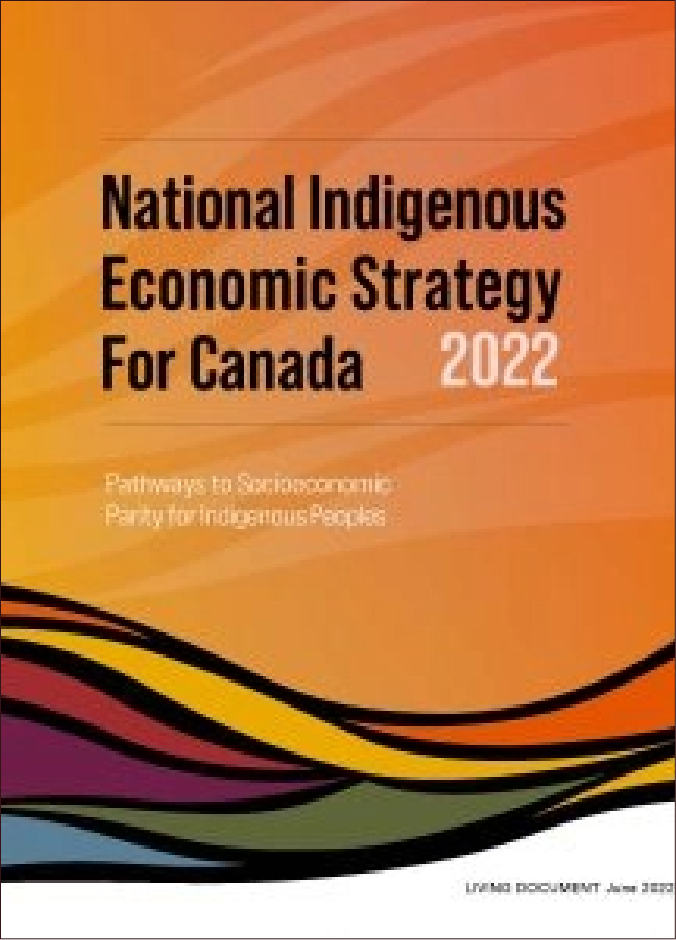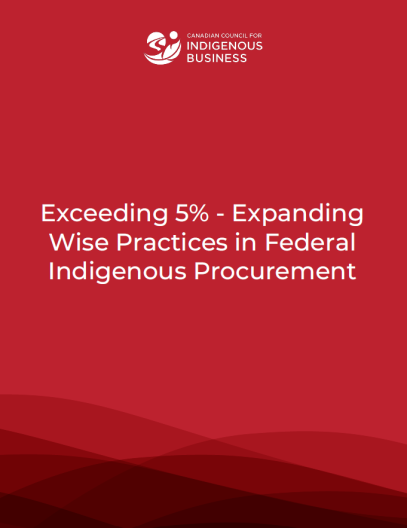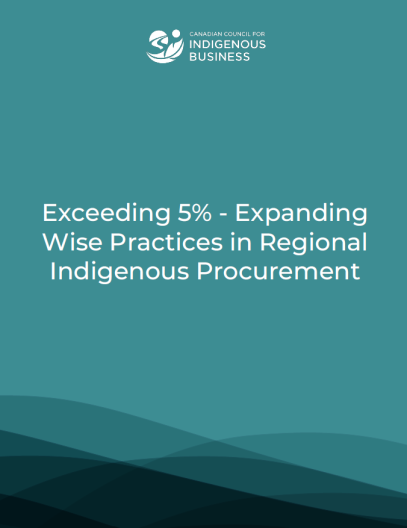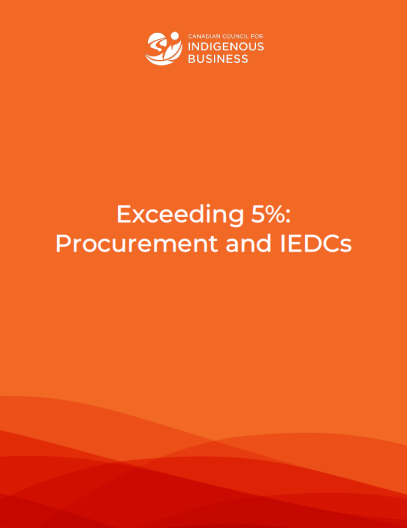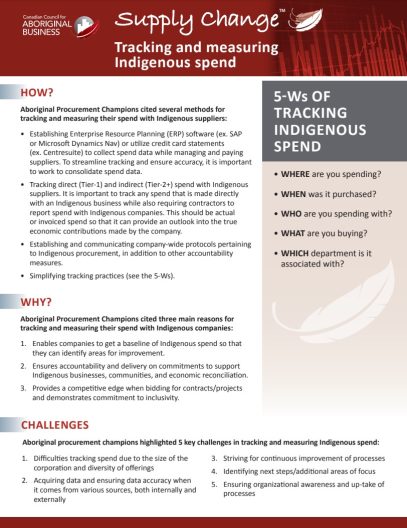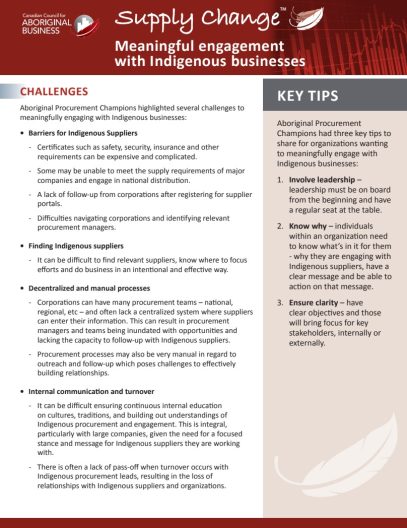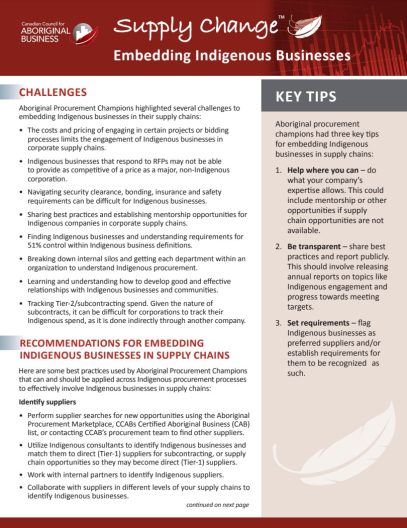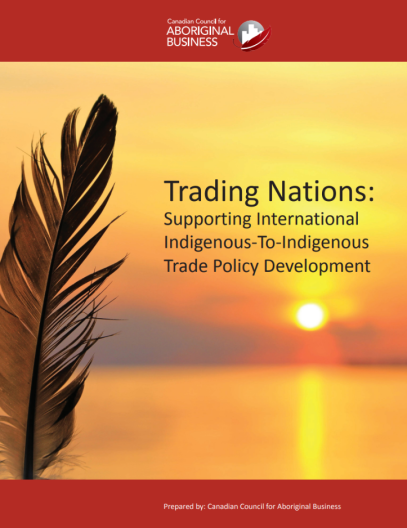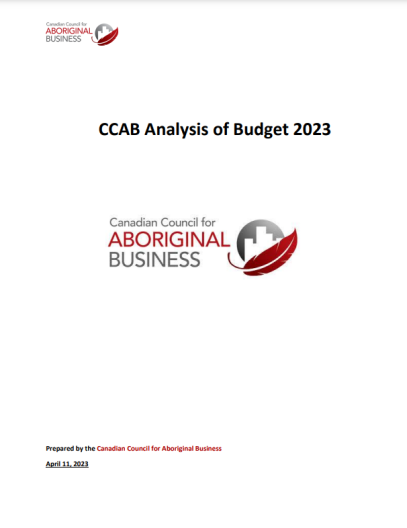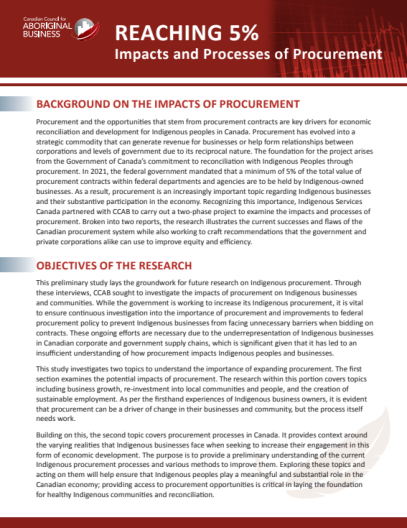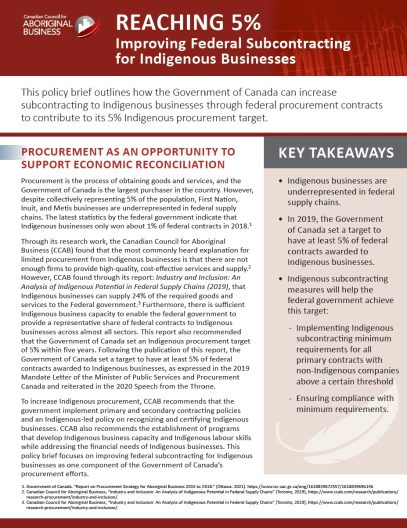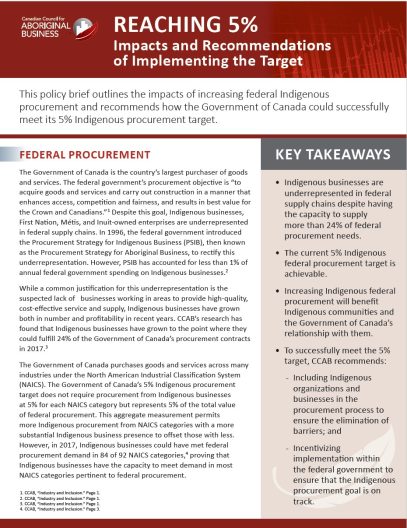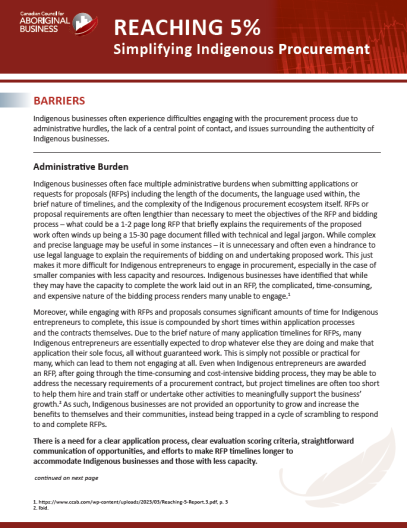2020 List of Achievements
1. Delivered CCAB’s Day on the Hill: February 25, 2020
2. Delivered interventions at the Organization for Economic Cooperation and Development:
- Global Forum on Responsible Business Conduct: June 15 – 17, 2020
- Business Grievance Mechanisms: December 14, 2020
3. Contributed an Indigenous business perspective to the Canadian Chamber of Commerce’s Think Growth policy initiative: August – December 2020
4. Facilitated a dynamic working group of corporate, Indigenous and federal partners to improve corporate procurement from Indigenous businesses in federal contracts: September –December 2020
5. Facilitated a federal, corporate and Indigenous dialogue to increase support for Indigenous exporters: September 16, 2020
6. Delivered a comprehensive response to the Federal Speech from the Throne: September 23, 2020
7. Supported Indigenous inclusion in the Government of Canada 50/30 Challenge: October – December 2020
8. Supported Indigenous inclusion in the first women only business mission to the Republic of Korean: November 3-4, 2020
9. Supported CCAB appearances before Federal Parliamentary Committee to include policy making:
- Standing Senate Committee on National Finance: November 12, 2020
- House of Commons Committee on Indigenous and Northern Affairs: November 17, 2020
- House of Commons Committee on International Trade: December 11, 2020
10. Contributed to a Federal Department of Fisheries and Oceans Indigenous procurement policy dialogue: December 3, 2020
11. Led the Canada – Australia Indigenous Export Dialogue: December 3, 2020
12. Launched an Indigenous Export Advisory Committee: December 2020







